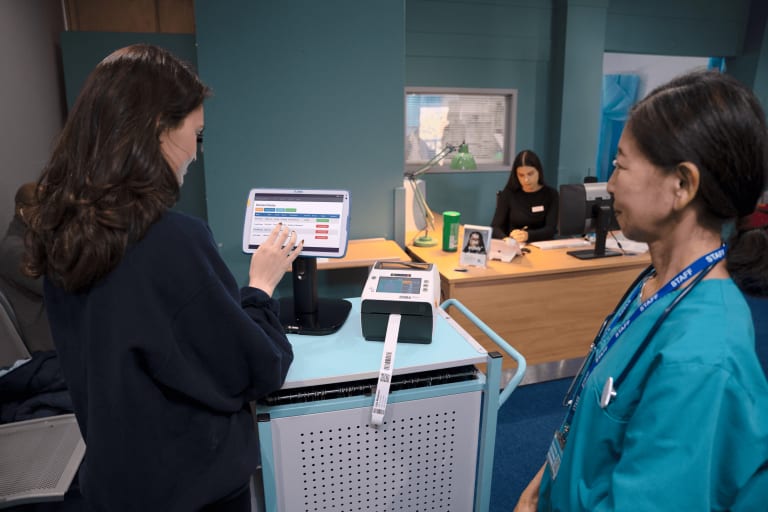
RFID & Healthcare: 5 Ways To Improve Patient Care
Despite already being an established asset across various industries, the latest innovations in radio frequency identification (RFID) technology have enabled connectivity with cloud computing and other technologies—making it an extremely beneficial asset. As we know, RFID is wireless communication technology where readers identify and monitor data-integrated tags. Each tag holds information about a specific item and broadcasts the data to the reader. In a way, RFID works like a barcode; however, it has some uniquely useful characteristics. The reader does not require firsthand contact to read the tag, and numerous tags can be read at once. Every time the reader identifies a tag, those readings can be transferred in real-time into cloud-based software and networks. As a result, authorized people within the organization can interact with and share that information. While focusing on healthcare, RFID technology can be deployed in hospitals and other facilities to transform clinical and administrative procedures. Of the many ways RFID technology can be leveraged in the healthcare industry, the following five are most effective in improving patient care.
- Patient Tracking – RFID-powered patient tracking systems enable facilities to keep track of individual patients, protect highly at-risk individuals, and obtain real-time visibility and control of patient distribution, occupancy, and space availability. Once deployed, your workflows and patient pathways will be enhanced.
- Device Traceability – Medical devices that are tagged with RFID technology provides total, in-depth traceability. This allows the devices to be located, and patients treated with specific devices in mere moments.
- Pharmaceutical Stock – RFID-enabled tagging and reading delivers instantaneous overviews of pharmacy and device stocks and other relevant information. Doing so can maximize ordering, control of inventory, and availability.
- Record Keeping – When used with electronic patient and administrative records, RFID technology decreases miscommunications, updates, and exchanges in real-time. The results? Less delays and compliance issues, and usability at every point of a patient’s pathway.
- Central Information Hubs – When implanted in patient wristbands, RFID technology works perfectly with record generating workflows and flows it into a singular source of information for all clinicians and managers, which enables real-time updates at the bedside or treatment site.
No matter the size of your healthcare facility, Zebra’s innovative RFID technology will integrate seamlessly into your operations while effectively elevating its efficiency. If you’re ready to improve the way you care for your patients, reach out to our team at Strategic Systems today to learn more.
